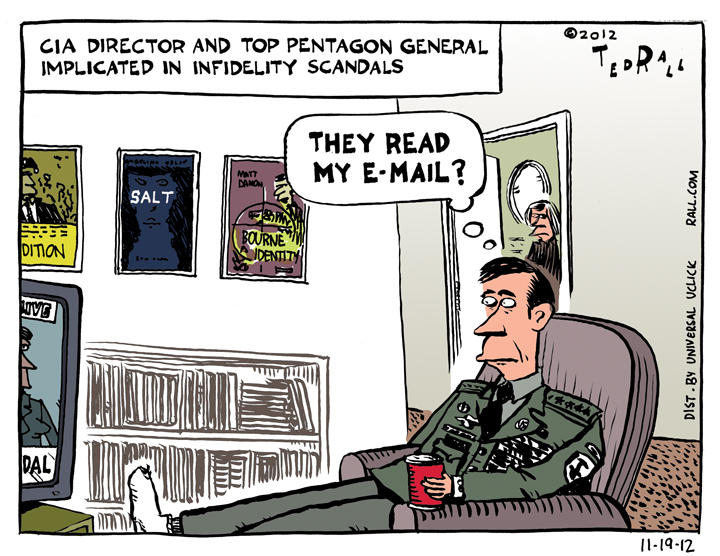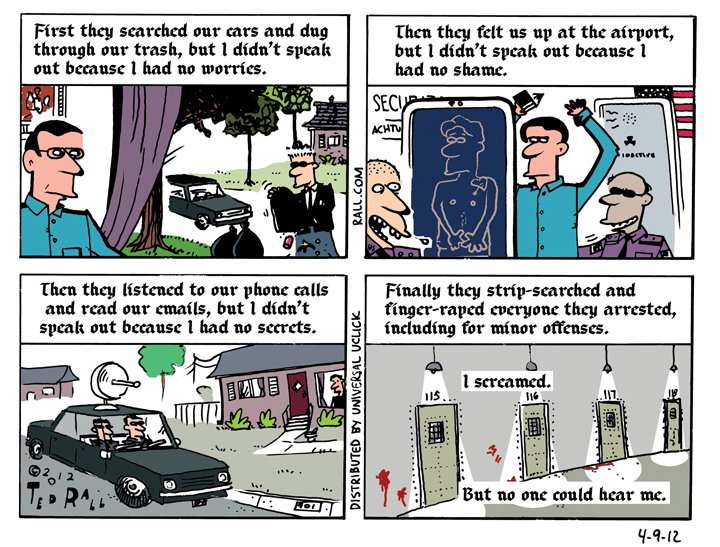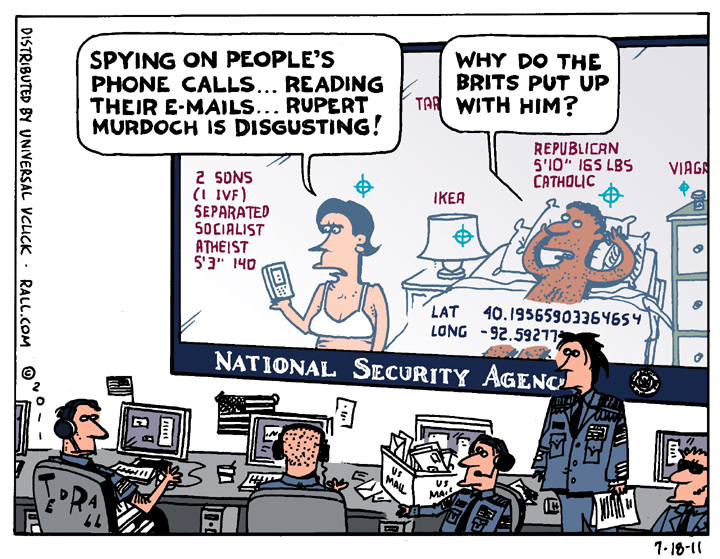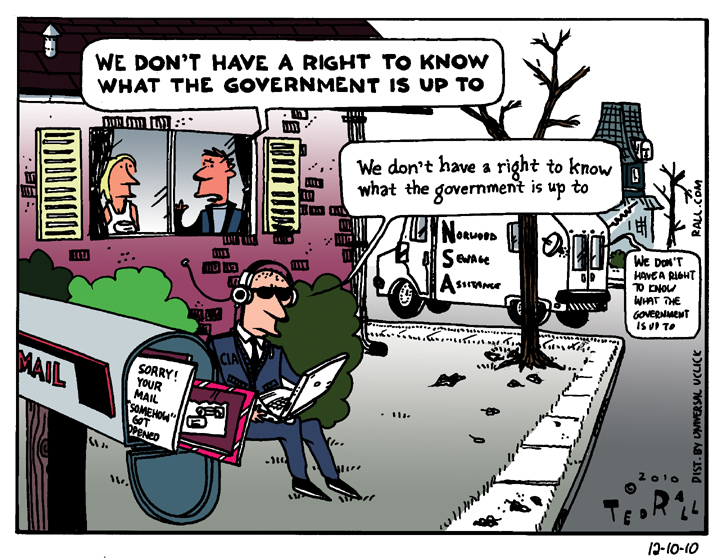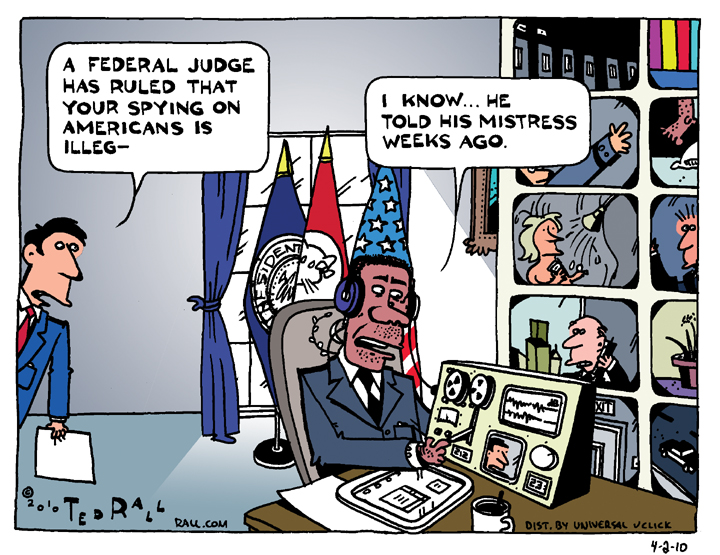Will We Resist a Massive Government/Corporate Conspiracy?
Turkey teeters on the brink of revolution — because the government wants to build a mall in the middle of a public square in Istanbul.
What will we do about the PRISM conspiracy?
With due respect to the Turkish protesters — with whom I agree — PRISM is a trillion times worse than Taksim Square.
PRISM is run by the NSA and FBI.
The charter of the National Security Agency, a spy agency created to collect foreign intelligence, specifically states that it is prohibited from “acquiring information concerning the domestic activities of United States persons.” Simple English. NSA isn’t even allowed to spy on Americans accidentally.
The Federal Bureau of Investigation’s self-professed mission is to “protect and defend the United States against terrorist and foreign intelligence threats, to uphold and enforce the criminal laws of the United States, and to provide leadership and criminal justice services to federal, state, municipal, and international agencies and partners.”
The NSA claims that its actions are “consistent with U.S. laws and the protection of privacy and civil liberties.”
Yet:
Not.
The darkest dystopian visions of the future — 1984, Brazil, Sleep Dealer — have come to chilling, horrific life. There can no longer be any illusion that the U.S. is a democratic republic. Everything we learned as schoolchildren was a lie. The U.S. government does not serve us. This is not a government by the people or for the people. The regime in Washington no more respects our rights as citizens, our dignity as individuals, than the North Korean dictators of Pyongyang. We eat better and watch better TV but where it counts, at essence, we are exactly the same.
The Washington Post and the British newspaper The Guardian have broken a startling blockbuster, perhaps the biggest story of our lives. “The NSA and the FBI,” writes the Post, “are tapping directly into the central servers of nine leading U.S. Internet companies, extracting audio and video chats, photographs, e-mails, documents, and connection logs that enable analysts to track one target or trace a whole network of associates.”
This is a government-big business conspiracy of the first order, so breathtaking in scope and ambition that it is scarcely comprehensible.
According to a classified PowerPoint presentation leaked by a patriotic intelligence officer said to be consumed with “horror at the capabilities” of the PRISM system, the U.S. government taps directly into the servers of Microsoft, Yahoo, Google, Facebook, PalTalk, AOL, Skype, YouTube and Apple. Google, the biggest Internet company on earth, controlling 16% of global Internet traffic, pretended to stand up to China’s clumsy attempts to censor the Web, but when the NSA came calling, they saluted, bent over and paid for lube.
Google could have litigated. They could have called a press conference. They could have leaked the threats. Instead, they turned over everything. Voluntarily. If you’re online, Google has given your “private” information to the feds. “Don’t be evil?” Ha.
If capitalism counts for anything, contracts have to be enforced. There is a universally understood implicit contract between Internet users and companies like Microsoft and Apple: they keep your data private to the best of their abilities. They might get hacked; a court may serve them with a subpoena. Stuff happens. But they’re not supposed to voluntarily give every bit and byte to the government just because they asked nicely. Because they want to be considered, in government parlance, “a trusted company.”
The government trusts them. But now, can anyone else?
These Internet giants had a choice. They could have told the government to take a walk. According to the Post: “Apple demonstrated that resistance is possible when it held out for more than five years, for reasons unknown, after Microsoft became PRISM’s first corporate partner in May 2007. Twitter, which has cultivated a reputation for aggressive defense of its users’ privacy, is still conspicuous by its absence from the list of ‘private sector partners.'”
PRISM exposes the horrifying, galling partnership between the biggest Silicon Valley corporations and an out-of-control security state. No one is safe in a society governed by such powerful elites colluding so closely.
It also belies previous official claims that anti-terrorism and other security-based intelligence-gathering operations are specifically targeted at likely threats. To the contrary, the U.S. government is plainly interested in — and has largely succeeded at — intercepting, collecting and analyzing every electronic communication in the United States, and presumably abroad as well.
For example:
“According to a separate ‘User’s Guide for PRISM Skype Collection,’ that service can be monitored for audio when one end of the call is a conventional telephone and for any combination of ‘audio, video, chat, and file transfers’ when Skype users connect by computer alone. Google’s offerings include Gmail, voice and video chat, Google Drive files, photo libraries, and live surveillance of search terms.”
Offerings.
That’s what they’re calling the emails we send each other. The photos we store in the “cloud.” Our video chats.
Everything we do online. Our entire online lives.
Offerings. They’re offering us up.
Yeah, of course, we knew they — the government — not our government, mind you — They — the others — the minions of the 1% — were spying on Americans at an epic scale that the Stasi spymasters depicted in the East German drama “The Lives of Others” couldn’t have dreamed of.
First came the 2001 USA-Patriot Act, which opened the door to officially-sanctioned law breaking in the supposed service of national security. In 2002 there was DARPA’s Total Information Awareness, the Bush Administration’s post-9/11 data mining operation, an attempt to “turn everything in cyberspace about everybody—tax records, driver’s-license applications, travel records, bank records, raw F.B.I. files, telephone records, credit-card records, shopping-mall security-camera videotapes, medical records, every e-mail anybody ever sent—into a single, humongous, multi-googolplexibyte database that electronic robots will mine for patterns of information suggestive of terrorist activity.” After an uproar, Congress defunded TIA — so its staff and activities simply packed up and moved to the NSA, where they continue to work today.
There was also AT&T’s secret room 641A, the site of “clandestine collaboration between one big telecommunications company, AT&T, and the National Security Agency to facilitate the most comprehensive illegal domestic spying program in history.” That story broke in 2007.
A few days ago, another sweeping violation of privacy came to light. This time, “the government has obtained phone numbers of both parties on every Verizon call, the call’s duration, location data and the time of day the calls were made.” That program is ongoing. (Were other telecommunications carriers involved? Probably. This is one of the few rubber-stamp FISA court warrants to come to light.)
It doesn’t take a genius to extrapolate from these stories to the massive scope of PRISM. But there’s a big difference between knowing the government is reading your emails and looking at your dirty pictures, and KNOWING they’re doing it. Now we KNOW.
So. What are we going to do about this?
Dropbox, Facebook, Google, Yahoo, Microsoft and Apple have all denied participation in PRISM. Maybe it’s all just a bad dream!
Probably not, though.
First: we need a full, independent investigation. Not by Congress. By someone we can trust. It’s hard to imagine who. Certainly not one of the big tech companies accused of betraying us.
Second: if this story turns out to be true, President Obama, Vice President Biden and the entire cabinet must resign and face prosecution. According to the Post, data collected from the rogue PRISM program is relied upon for roughly one out of seven of the President’s Daily Briefs on intelligence matters. “That is a remarkable figure in an agency that measures annual intake in the trillions of communications,” notes the newspaper. It means that knowledge of PRISM, and authorization thereof, goes to the Oval Office. There must be accountability. Swift accountability.
Members of Congress, corporate executives of the Internet companies involved, and of any other companies, must be held to account as well. Prosecutions should come quickly.
Finally, we have some hard questions to ask ourselves.
I’d start with this one:
What does it mean to be an American? Are we citizens, free men and women? Or are we serfs, not vested in even the primal right to talk to our friends and family members without some goddamn government asshole listening in?
(Ted Rall’s website is tedrall.com. His book “After We Kill You, We Will Welcome You Back As Honored Guests: Unembedded in Afghanistan” will be released in April by Farrar, Straus & Giroux.)
COPYRIGHT 2013 TED RALL

